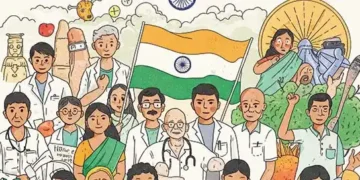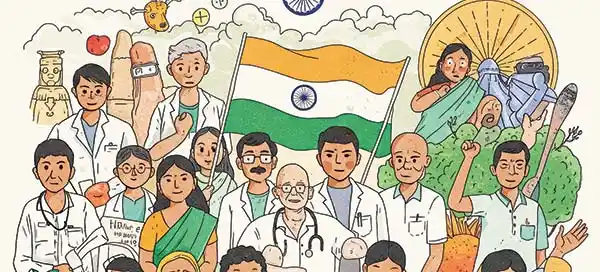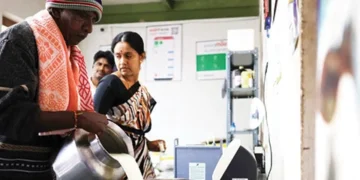INDIA’S goal to eliminate tuberculosis (TB) by 2025 is one of the world’s most ambitious health missions. Under the National Tuberculosis Elimination Programme (NTEP), the country has strengthened its TB response with advanced diagnostics, innovative policies, private sector partnerships, and a patient-first approach.
Key drivers of the programme include record-high case reporting, better diagnostics, financial support for patients, and strong multi-sector collaboration. However, with global TB funding declining and shifting priorities, continued commitment is vital to meet India’s target and the UN goal of ending TB by 2030.
The Government has implemented a range of focused strategies under its National Tuberculosis Elimination Programme (NTEP). The key initiatives under NTEP aim to strengthen diagnosis, treatment, and prevention efforts, accelerating progress toward a TB-free India.
Actions, achievements
In 2020, the Government renamed the revised National Tuberculosis Control Programme as National TB Elimination Programme (NTEP). It reflects India’s goal to eliminate TB by 2025, five years before the global target of 2030.
The NTEP follows the National Strategic Plan (2017-2025), focusing on four key actions: ‘Detect, Treat, Prevent, Build’ to control and eliminate TB in the country.
The NTEP is making strong strides toward eliminating TB by 2025. Here are its key achievements:
The programme recorded its highest-ever case notifications, reporting 25.5 lakh TB cases in 2023 and 26.07 lakh cases in 2024.
First-ever indigenous TB burden model: India’s own mathematical model for state-wise TB estimates.
Incentives for ASHAs, TB champions and caregivers: Strengthening patient support systems.
Three lakh additional cases found via house-to-house screening: Focus on high-risk groups.
According to WHO’s Global TB Report, India has made significant progress in fighting tuberculosis. Under the NTEP, the incidence rate of TB cases has dropped by nearly 17.7 pc, from 237 cases per 1 lakh people in 2015 to 195 in 2023.
Supporting patients
The Pradhan Mantri TB Mukt Bharat Abhiyaan, one of the components of NTEP, aims to unite communities, businesses, and institutions to support TB patients and their families. It focuses on providing nutritional, diagnostic, and vocational support to improve treatment outcomes, reduce illness and deaths, and fast-track India’s goal of TB elimination.
Its key goals include: offering additional care and support to TB-affected individuals; promoting active community participation; and mobilising CSR contributions from businesses and institutions.
Nikshay Yojana
The NIKSHAY-TB notification incentive for the private sector, launched in 2018 by the Ministry of Health and Family Welfare, incentivises private healthcare providers to report TB cases, improving TB surveillance and treatment.
Under the NIKSHAY Poshan Yojana (NPY), financial support for TB patients’ nutrition has been increased from Rs 500 to Rs 1,000 per month, providing Rs 3,000 to Rs 6,000 per patient throughout treatment.
NIKSHAY Mitra initiative: It encourages individuals, NGOs, corporates, faith-based organisations, and others to adopt TB patients for at least six months, offering them nutritional, social, or economic support. The scope of this initiative has now been expanded to include food baskets for household contacts of TB patients, aiming to boost immunity, lower infection risk, and reduce families’ financial burden.
Additionally, over Rs 3,202 crore has been disbursed to 1.13 crore beneficiaries through Direct Benefit Transfer under the Nikshay Poshan Yojana, supporting better nutrition and treatment outcomes.































